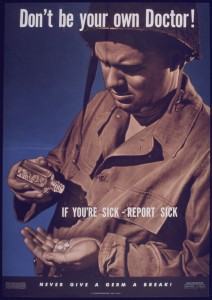On February 12, 2016, the Massachusetts Supreme Judicial Court ruled that, in third-party settlements, workers’ compensation liens will not cover damages for injured employees’ pain and suffering. The compensation for these “noneconomic damages,” which had previously been awarded to workers’ compensation insurance providers, will now be passed on to the workers. The ruling in the case—DiCarlo vs. Suffolk Construction—came as a victory for injured workers, ensuring that workers’ compensation insurance providers may not claim the entirety of a worker’s settlement with a responsible third party.
The Law in Massachusetts
Massachusetts workers’ compensation law entitles injured workers to compensation for medical care and lost wages. However, it does not provide compensation for pain and suffering. In some cases, a worker’s injuries at a workplace occur as the result of negligence by a third party, such as a property owner or contractor. If the third party is responsible for the injury, the injured worker can sue for damages—including compensation for pain and suffering—from the individual or party at fault. In DiCarlo vs. Suffolk Construction, the court ruled that workers’ compensation will not cover the portion of a third-party settlement intended to cover pain and suffering.
What Is the Business Impact of the Court’s Decision?
Third-party settlement amounts are sometimes less than the full amount of a workers’ compensation lien. An injured worker may choose to accept a compromise settlement that guarantees some compensation rather than risking a loss at trial. Prior to the DiCarlo ruling, a workers’ compensation insurance company could reduce its lien and allow an injured worker to keep some portion of a third-party settlement; the law, however, did not mandate such a lien reduction. From now on, an injured worker will now receive the portion of a third-party claim set aside for pain and suffering, with the remainder of the settlement used to defray legal expenses and any workers’ compensation lien.
Agreeing on Fair Distribution
The ruling did not include a formula for allocating compensation for pain and suffering, but the court noted that the amounts must be fair and proportional. Third-party settlements are reviewed by either a trial judge or by the Department of Industrial Accidents; all parties have the right to be heard. As a result of the DiCarlo ruling, compromise must be made in the best interest of both injured workers and workers’ compensation insurers.
—
About the Author:
 John J. Sheehan practices workers’ compensation law in Boston, Massachusetts, where he was born and raised. Mr. Sheehan is a member of organizations including the American Bar Association, the Massachusetts Bar Association, and the Massachusetts Academy of Trial Attorneys. In 1993, John Sheehan graduated from Suffolk University Law School and gained admittance to the Massachusetts state bar.
John J. Sheehan practices workers’ compensation law in Boston, Massachusetts, where he was born and raised. Mr. Sheehan is a member of organizations including the American Bar Association, the Massachusetts Bar Association, and the Massachusetts Academy of Trial Attorneys. In 1993, John Sheehan graduated from Suffolk University Law School and gained admittance to the Massachusetts state bar.
Interested in guest blogging for us on your topic of expertise? Send us an message on our website by clicking here or navigating to the “Write For Us” tab!



 Marlborough Hospital Leads Nicotine-Free Hiring
Marlborough Hospital Leads Nicotine-Free Hiring Massachusetts Aims to Set Healthy Example
Massachusetts Aims to Set Healthy Example


